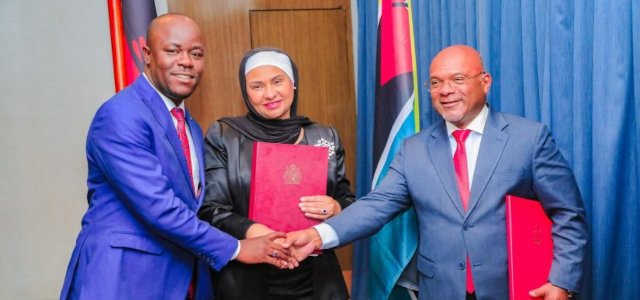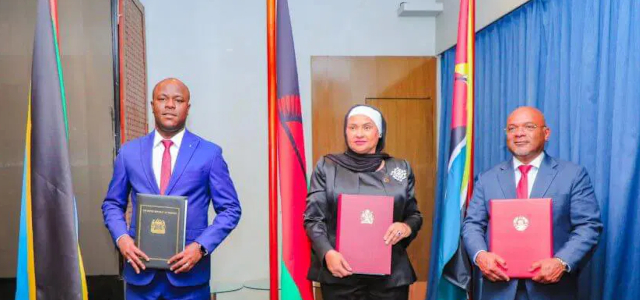The river serves as a vital water source for communities, agriculture, and industries across the three member states, but despite its benefits, the basin faces several challenges that include a lack of comprehensive management plans, hampering the sustainable use and conservation of its resources. The basin is also increasingly vulnerable to the adversities of climate change, manifesting in unpredictable rainfall patterns and extreme weather events. Compounding these challenges is the scarcity of reliable data and the limited involvement of local stakeholders in decision-making processes.
To address these challenges, the Ruvuma Basin member states, with support and collaboration from the Southern African Development Community (SADC), the International Union for Conservation of Nature (IUCN) as implementing authorities, and the Global Water Partnership Southern Africa (GWPSA), as the executing agency, are applying for grant support from Global Environment Facility (GEF) to support the strengthening of transboundary basin management. The MoU has been signed under the IUCN/GWPSA/GEF project, which is currently being prepared under the Project Preparation Grant phase.
“The MoU will serve two main objectives; to develop mechanisms for corporation on sustainable use, development, protection, conservation, and management of the Ruvuma Basin and strengthen cooperation; and establish an interim secretariat for the Ruvuma River Basin Commission,” reads part of the MoU.
The Ruvuma River Basin covers an area of approximately 155,000 km2, with the Mozambican territory covering 100,000 km2 (65%), Tanzania covering 52,000 km2 (~34%), while the remaining part is in Malawi covering 2,500 km2 (<2%).

Ministers responsible for water from Tanzania, Malawi and Mozambique signed the Joint Management Ruvuma/Rovuma River Basin MoU in Dar es Salaam, Tanzania on 31 July 2024
With the signed MoU, the three SADC member states will cooperate on the following areas, among others:
- Promote equitable utilisation, efficient management, and sustainable development of the water resources
- Promote research in the area of integrated and sustainable management and development of the basin
- Build capacity of the institutions that contribute to the implementation of the MoU
- Strengthen monitoring of both the quality and quantity of the water resources and environmental changes in the basin
- Promote information and data sharing including environmental and social impact assessment results.
The three states already conducted stakeholder engagement exercises, which helped identify the major challenges around the basins and the potential solutions. In Malawi for instance, stakeholders suggested several interventions, including the following:
- Basin-wide awareness campaign: Launch a comprehensive campaign across the basin to raise awareness among all stakeholders, including political leaders, communities, and water-related sectors to emphasize the significance of water resource management and environmental protection, highlighting the importance of sustainable practices. The campaign will improve compliance from the communities and enhance the enforcement of the law.
- Provision of education and training: Revamp and establish all community water resources and environmental management committees within the basin and provide training and education to enhance sustainable management of water and the environment.
- Promotion of alternative livelihoods: Introduce sustainable income-generating activities for communities residing near protected areas to deter unsustainable resource usage and promote income generation.
- Strengthening of multi-stakeholder platforms: Strengthen capacity and operationalise the existing basin-wide service providers and institutions in environmental management and water resources management, including fisheries.
- Promotion of sustainable agriculture: Encourage the adoption of sustainable agricultural practices, like conservation agriculture to mitigate the adverse effects of unregulated shifting cultivation.
- Environmental restoration: Rehabilitate degraded areas through enrichment planting.
Photo Credit: Ministério das Obras Públicas, Habitação e Recursos Hídricos-MOPHRH
